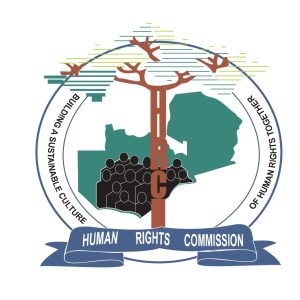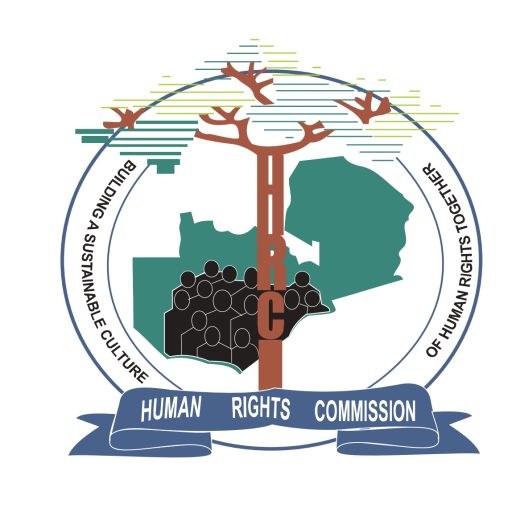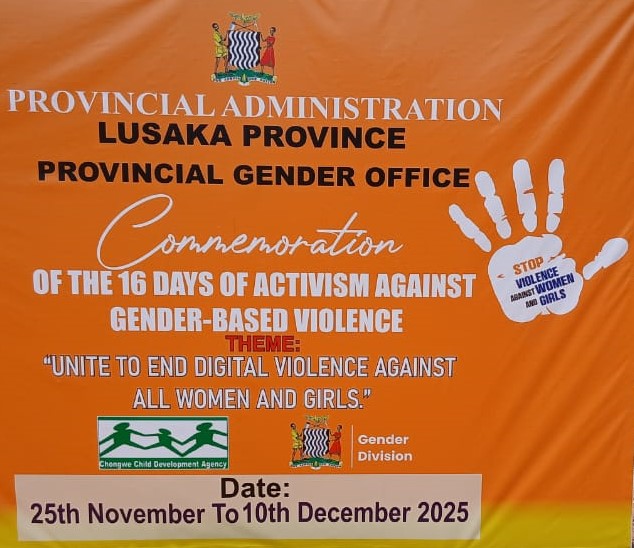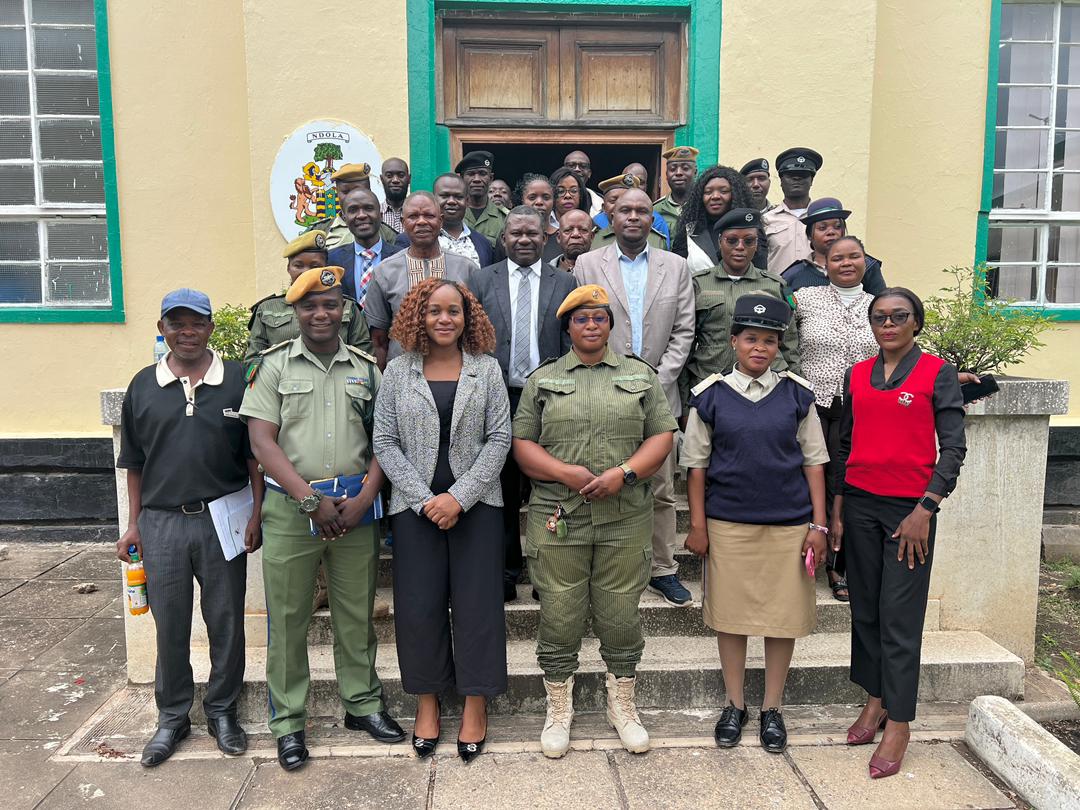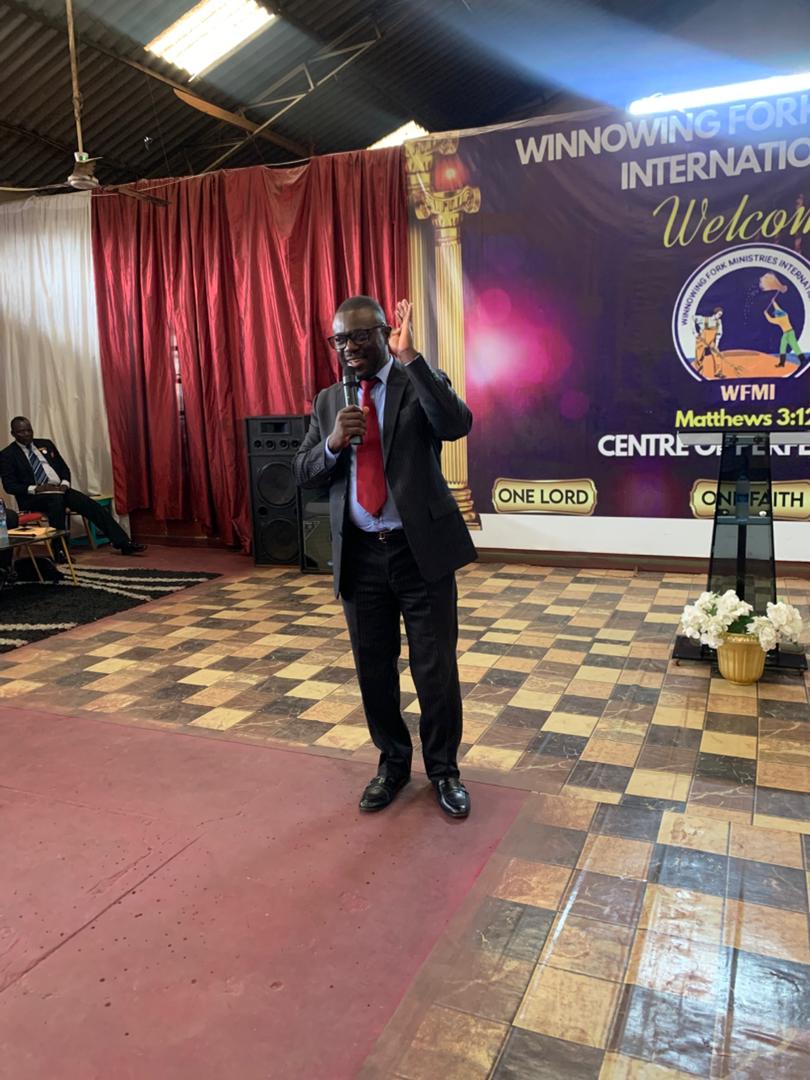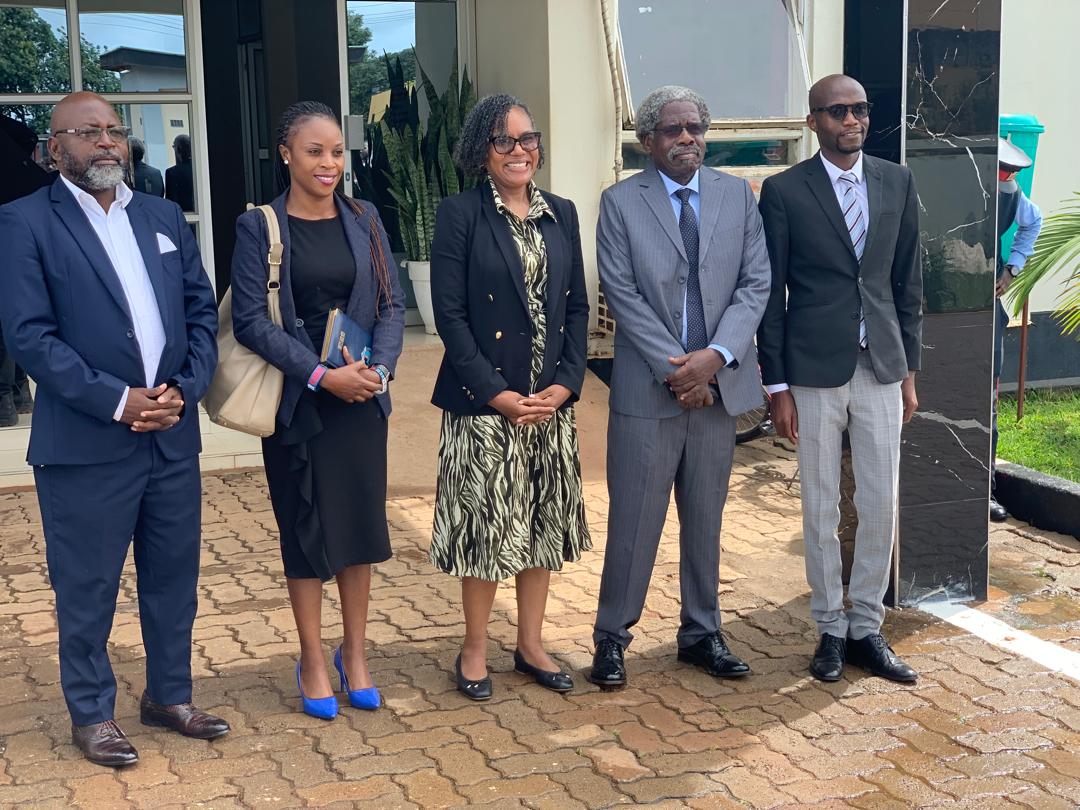Zambia has marked the start of the 2025 16 Days of Activism Against Gender-Based Violence with the Human Rights Commission of Zambia (HRC) making a passionate call for justice, accountability, and strengthened national commitment to end all forms of violence against women and girls.
Speaking at the national commemoration held at the Copperbelt University in Kitwe, the Commission’s Vice-Chairperson, Dr. Felicity Kayumba Kalunga, urged stakeholders to take bold action in safeguarding women’s and girls’ rights, emphasizing that digital spaces must be made safe as violence increasingly shifts online.
Dr. Kalunga drew a direct link between the 16 Days of Activism and the Commission’s ongoing efforts to confront deep-rooted abuses affecting girls across the country.
“As the nation may be aware, the Commission has since last year been conducting public hearings on early marriages as one of the ways of investigating and redressing systemic abuse of the rights of girls through forced and early marriage. The findings are extremely disturbing because the scourge is both prevalent and endemic, particularly in rural areas,” Dr. Kalunga said.
She commended Government for concrete interventions, including the development of the 2026–2030 Second-Generation National Strategy on Ending Child Marriage, describing it as a critical tool in dismantling harmful practices that rob girls of their futures.
The Vice-Chairperson reaffirmed the Commission’s firm stance against all forms of violence, stating that acts of abuse gravely undermine human rights ranging from security of the person to education, dignity, and even life.
She further called for “practical steps to effectively prevent and punish perpetrators of digital violence to ensure that the digital space is safe for everyone.”
Meanwhile, in Rufunsa District, HRC Commissioner Mrs. Panic Malawo Chilufya, who gave a vote of thanks at the Lusaka Province launch of 16 Days Activism against Gender-Based Violence, emphasized that the national campaign is firmly aligned with Government’s human rights commitments.
Commissioner Chilufya highlighted that the fight against gender-based violence is strengthened by the State’s ratification and domestication of international human rights instruments aimed at protecting women and girls.
“This activism period reflects the Government’s unwavering commitment and the various measures that have been put in place to end gender-based violence. Our collective responsibility is to ensure that these instruments translate into real protection and meaningful change in the lives of women and girls across the country.”
She encouraged communities to use the 16-Day campaign as an opportunity to speak out, report cases, and safeguard survivors, adding that ending GBV requires coordinated action from government, civil society, traditional leaders, and citizens alike.
HRC made, at both ceremonies, a renewed call for unity, vigilance, and justice throughout the 16 days leading up to the commemoration of International Human Rights Day on 10th December.
“Where violence occurs, perpetrators should be brought to book and subjected to the due process of the law in order to end impunity,” stressed Dr. Kalunga.
The HRC also acknowledged the continued support of the UN System, cooperating partners, and local stakeholders, emphasizing that ending gender-based violence is a national and collective obligation that demands courage, consistency, and compassion.
The global theme for this year’s 16 Days of Activism against Gender-Based Violence is: “Unite to end digital violence against all women and girls.”
